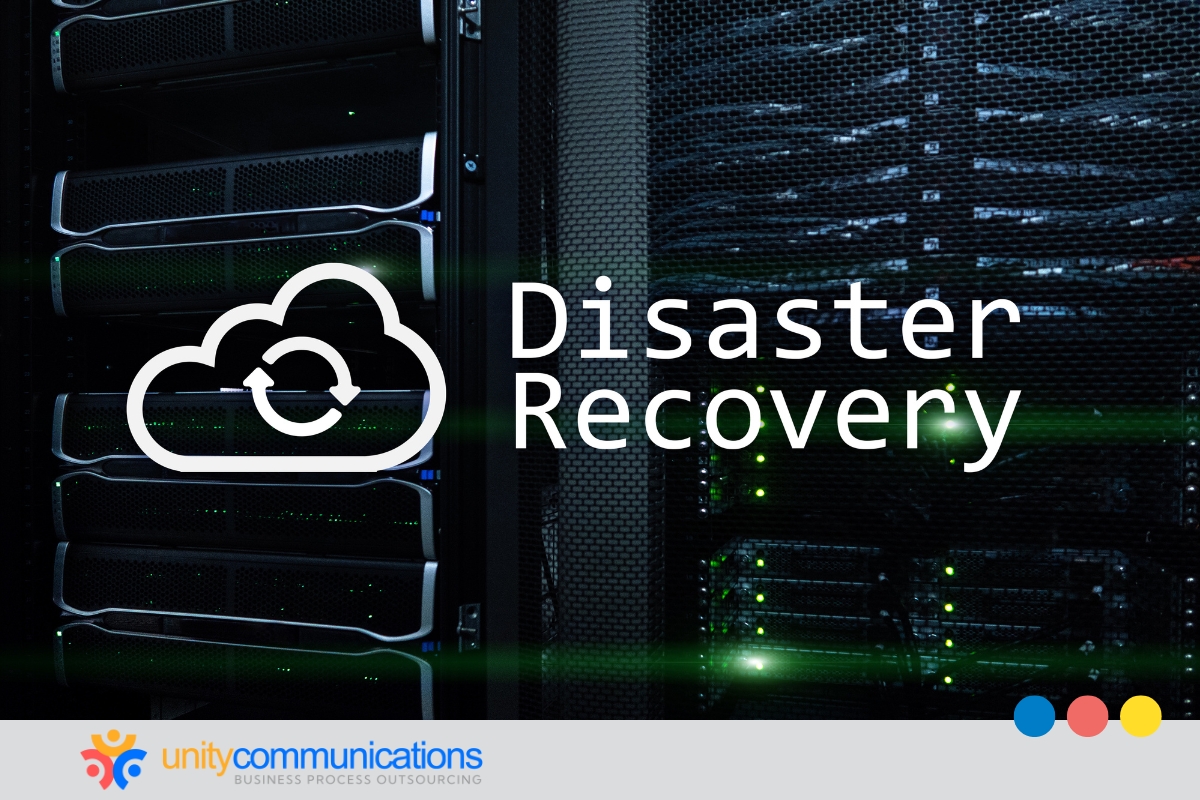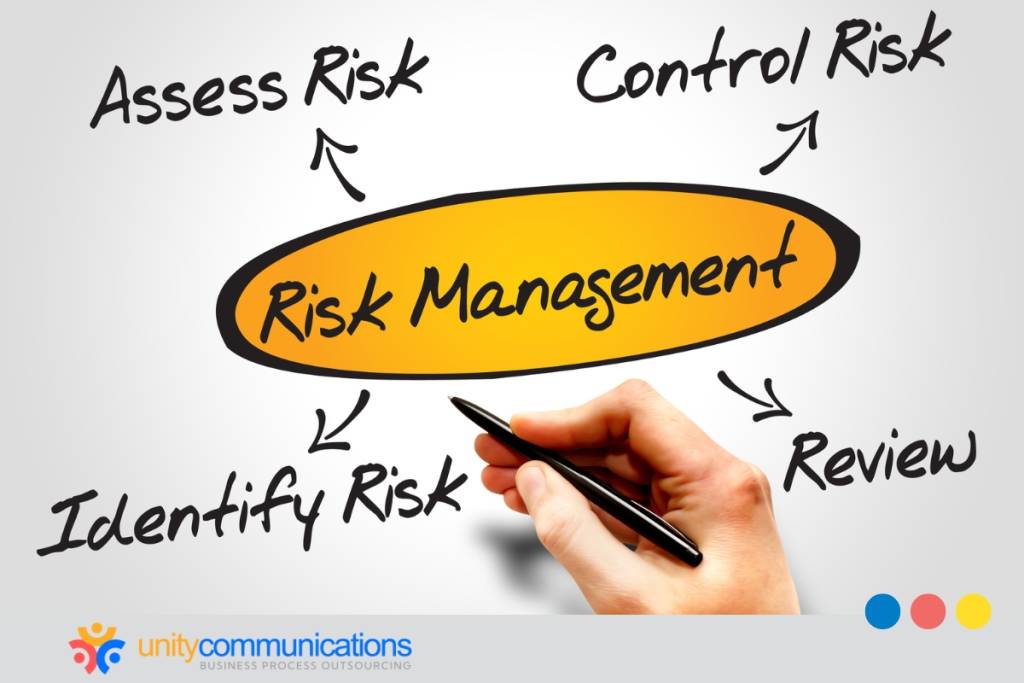IN THIS ARTICLE
Table of Contents
If you ask 64% of executives how they keep their legal functions efficient while cutting costs, they’ll likely say business process outsourcing (BPO) is their preferred strategy. Service providers house skilled professionals who use modern solutions to address challenges effectively.
They streamline tedious, non-core tasks at competitive hourly or monthly fees. However, are cost reduction, efficiency, and access to scalable resources the only benefits of BPO in risk management and compliance?
Find out in this article.
Understanding BPO in Risk Management and Compliance

According to Deloitte’s 2022 survey, 64% of executives entrust their legal processes to third parties. They identify wanting to gain cost savings and new capabilities as their primary reasons for outsourcing.
Adjusting to changing regulatory requirements and addressing complex cybersecurity threats also contribute to their outsourcing decisions. Aside from these common advantages, the sections below show what BPO’s actual position in risk management and compliance is.
Assess and Analyze Enterprise Risks
Service providers employ skilled professionals with in-depth knowledge and experience in assessing and analyzing enterprise risks. These workers are proficient in using advanced tools and methodologies to research possible challenges to your legal compliance.
Third-party vendors also ensure their workers know the latest regulatory updates, industry trends, and issues. These experts use such insights to help your in-house team understand complex legal landscapes and requirements.
Perform Regular Compliance Audits
Compliance audits help identify which areas of your business encounter regulatory issues and require urgent resolutions. By taking over these routine activities, BPO companies let their in-house teams prioritize more pressing matters and revenue-generating projects.
Here are the steps in a compliance audit:
- Assess your current business and regulatory environment.
- Review policies, procedures, contracts, and regulatory filings.
- Customize a compliance audit plan outlining processes, goals, and timelines.
- Perform on-site or remote audits, depending on your preference.
- Examine financial records, employee activities, and data security measures.
- Conduct key personnel interviews and surveys to identify potential gaps.
- Evaluate current compliance status against industry regulations and best practices.
- Document audit findings, including compliance strengths and weaknesses.
- Draft risk management recommendations to address compliance issues.
- Help implement corrective actions and continuous compliance monitoring processes.
Support Regulatory Reporting and Filing
Outsourcing your risk management involves streamlined regulatory reporting and filing. Service providers help monitor changes and trends in the legal landscape. They provide updates and assist in aligning your compliance strategies with industry standards through these practices:
- Gather and validate data needed to fulfill regulatory reporting requirements.
- Manage and maintain a compliance calendar that outlines vital regulatory deadlines.
- Prepare accurate and comprehensive regulatory reports based on the collected data.
- Perform thorough quality assurance and accuracy checks on the prepared reports.
- Facilitate the electronic submission and filing of regulatory reports.
- Navigate online portals and follow submission protocols.
- Oversee a detailed audit trail of the regulatory reporting process.
- Handle communications with regulatory authorities and respond to inquiries.
- Use automation tools to ensure error-free and fast data entry procedures.
Ensure Data and System Security
BPO companies prioritize strengthening data and system security to prevent clients from spending millions on threat mitigation efforts and regulatory sanctions. By implementing the following measures, they can help avoid wasting about $4.45 million due to a data breach.
- Develop and execute comprehensive guidelines on handling sensitive data and critical enterprise systems.
- Review and comply with local and international data protection laws, such as the General Data Protection Regulation (GDPR) and the Health Insurance Portability and Accountability Act of 1996 (HIPAA).
- Leverage strict access controls and authentication mechanisms to only allow authorized personnel to use confidential information and infrastructure.
- When exchanging data, use secure communication channels such as encrypted virtual private networks (VPNs) or safe file transfer protocols.
- Install robust firewall solutions on networks and desktop systems to combat unauthorized access and prevent malicious activities.
- Encrypt classified data to protect it from intentional or unintentional leaks, whether at rest or in transit.
- Hold frequent security audits to identify potential flaws in business processes and systems.
- Perform penetration testing, vulnerability scanning, and risk assessment to resolve potential security issues proactively.
- Train in-house and client security personnel to inform them about evolving cyber threats, proper data handling procedures, and best system usage practices.
Assist in Disaster Recovery and Business Continuity Planning
In addition to conducting the steps discussed, BPO’s roles and responsibilities in risk management include disaster recovery and business continuity planning. Providers help draft and implement these strategies to respond to natural disasters, cybersecurity incidents, and other disruptions.
BPO organizations also help establish and execute robust data backup and recovery mechanisms. They optimize cloud-based solutions to store, access, and retrieve essential data remotely. These advanced tools offer scalability, especially during prolonged system downtime.
Is Outsourcing Worth the Risk?

Outsourcing is worth the risk, especially if you carefully evaluate and weigh the BPO risks and benefits. You must note different factors, including the nature of work, the scope of service, and the provider’s credibility.
Here are some considerations to ensure outsourcing is worth the investment:
- Businesses outsource to save costs. However, focusing too much on cutting expenses may compromise your product and service quality. So, make sure to balance these two aspects when seeking a provider.
- BPO means relinquishing some control over specific functions. Evaluate whether its advantages outweigh the potential loss of control over critical enterprise tasks. This way, you can align the third party’s strategies and resources with yours.
- While outsourcing offers short-term benefits, you should assess its potential long-term impact on your strategic objectives. Ensure the BPO company understands and adjusts to your crucial requirements.
- Working with a provider involves sharing confidential information over the internet. According to a recent study, 98% of organizations have partnered with vendors that experienced a data breach within the last two years. You can avoid this incident if you verify that your potential BPO partner has robust security measures that match yours.
- Entrusting non-core functions to a third party lets your in-house team focus on your core competencies. However, assessing which processes to outsource is crucial to avoid compromising the primary aspects of your company.
The Bottom Line

BPO contributes significantly to the cost-effectiveness of your risk management and compliance processes. Third-party vendors optimize their scalable resources for routine tasks, from threat evaluation to mitigation planning.
Let’s connect if your business requires data processing and compliance assistance at competitive pricing. Unity Communications employs well-trained professionals and cutting-edge solutions to help minimize risks before they escalate.





